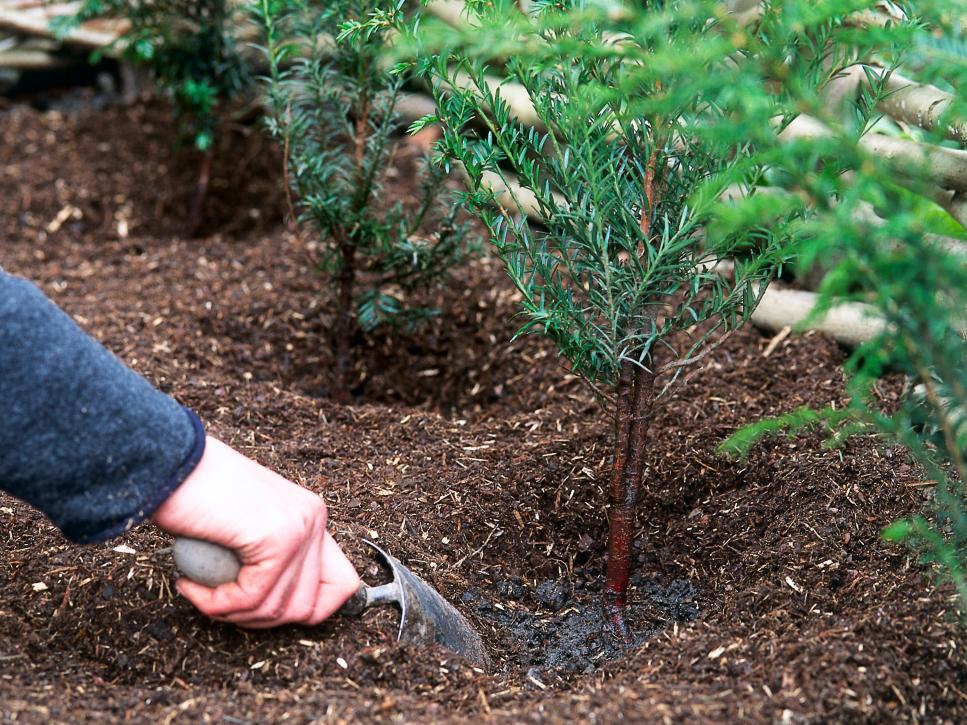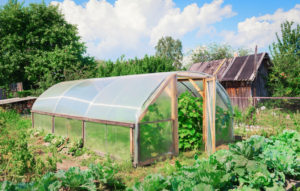Intensive mulching is a powerful technique for safeguarding plants from harsh weather conditions and preserving water.
Mulch, a layer of organic material such as wood chips or bark spread around the base of plants, helps to retain moisture in the soil, regulate soil temperature, and suppress weeds.
By implementing intensive mulching practices, gardeners and farmers can not only protect their crops from drought and extreme heat but also improve soil health and increase yield.
We will delve into the benefits of intensive mulching and explore practical tips for integrating this technique into your agricultural or horticultural routine.
Reduces soil temperature
Mulch acts as a thermal blanket, reducing soil temperature by up to 3-4°C (5-7°F). This helps to prevent damage to plants from extreme heat or cold.
This remarkable effect is achieved through the absorption and retention of heat by the mulch material, which slows down the soil’s rate of heat gain or loss.
As a result, the soil remains at a more consistent temperature, shielding the plants from the harmful effects of intense heat or cold.
This thermal blanketing effect is particularly beneficial during hot summer months, where soil temperatures can soar to scorching heights, damaging or even killing sensitive plants.
Similarly, during harsh winters, mulch helps to insulate the soil, preventing it from freezing and protecting the roots of plants from exposure to biting cold.
By incorporating mulch into your gardening regimen, you can provide your plants with a protective barrier, ensuring their well-being and optimizing their growth and productivity.
Prevents soil erosion
Mulch helps to bind the soil particles together, preventing soil erosion and nutrient loss. This is especially important on steep slopes or in areas with high winds.
Mulch is a vital component in maintaining soil health and preventing soil erosion, particularly on steep slopes or in areas with high winds.
When applied to the soil, mulch helps to bind the soil particles together, forming a cohesive layer that resist soil erosion.
This is especially important on steep slopes where the risk of soil erosion is high, as mulch acts as a physical barrier to prevent soil particles from being washed or blown away.
Mulch helps to retain nutrients in the soil, preventing them from being lost to erosion.
This ensures that the soil remains fertile and capable of supporting plant growth.
By incorporating mulch into your landscape, you can effectively protect your soil from erosion and nutrient loss, creating a more stable and healthy ecosystem.
Retains moisture
Mulch acts as an insulating layer, retaining soil moisture and reducing evaporation. This helps to prevent drought stress and promote healthy plant growth.
Mulch is a versatile and effective tool in gardening and landscaping, offering numerous benefits to plants and soil.
As an insulating layer, mulch retains soil moisture, preventing evaporation and drought stress.
This helps to promote healthy plant growth, as plants are able to access the necessary moisture for optimal development.
Mulch helps to regulate soil temperature, keeping it cooler during hot weather and warmer during cooler seasons, which enhances soil bioactivity and nutrient availability.
This layer of protection also reduces weed growth, minimizing competition for water and nutrients, and creating a more serene and manageable outdoor space.
By applying a layer of mulch around plants, gardeners and landscapers can ensure a healthy, thriving, and beautiful landscape for years to come.
Improves soil health
As mulch breaks down, it adds organic matter to the soil, improving its structure, fertility, and overall health.
As mulch breaks down, it unlocks a wealth of benefits for your soil, transforming it into a healthy and thriving environment for your plants.
The organic matter in the mulch, such as cellulose and lignin, decomposes over time, releasing nutrients and improving the structure of the soil.
The increased organic matter improves the soil’s water-holding capacity, allowing it to retain moisture and nutrients more effectively.
The decaying mulch adds beneficial microorganisms to the soil, such as bacteria and fungi, which help to break down organic matter and make nutrients more available to your plants.
The end result is soil that is more fertile, structurally sound, and teeming with life, creating an optimal environment for your plants to grow and thrive.
Reduces weed growth
Mulch can prevent weeds from growing by blocking sunlight and preventing them from germinating. This can reduce the need for herbicides and other weed control methods.
Mulch is an effective solution for weed control, as it blocks sunlight and prevents weeds from germinating.
By applying a layer of mulch to your garden or lawn, you can significantly reduce the need for herbicides and other weed control methods.
Mulch can be made from a variety of organic materials such as wood chips, bark, or straw, and it can be applied as a thickness of 2-4 inches.
This layer of mulch will not only block sunlight, but it will also help to retain moisture in the soil, which can help to promote healthy plant growth.
As mulch breaks down over time, it can add organic matter to the soil, further improving its fertility and structure.
By incorporating mulch into your weed control strategy, you can enjoy a healthier, more sustainable garden or lawn with reduced reliance on chemicals.
Provides habitat
Mulch can provide habitat for beneficial insects, such as bees and butterflies, which can help to pollinate plants and keep pests under control.
Mulch can play a vital role in providing habitat for beneficial insects, such as bees and butterflies, which can help to pollinate plants and keep pests under control.
When applied around plants, mulch creates a microclimate that supports the growth and reproduction of these beneficial insects.
For instance, bees and butterflies can use the mulch as a place to rest and hide from predators, and the mulch can provide a source of food for these insects.
By attracting these beneficial insects, mulch can help to increase the pollination of plants, leading to healthier growth and higher yields.
The mulch can help to suppress pests by providing a habitat for beneficial insects that prey on pests, such as ladybugs and lacewings.
By incorporating mulch into your gardening practices, you can create a healthier and more balanced ecosystem that benefits both your plants and the environment.
Supports soil biota
Mulch can support the growth of beneficial microorganisms in the soil, such as mycorrhizal fungi, which can help to absorb nutrients and water.
Mulching your soil can provide a wealth of benefits for your garden, including supporting the growth of beneficial microorganisms like mycorrhizal fungi.
These fungi form symbiotic relationships with plant roots, allowing the fungi to absorb nutrients and water from the soil more efficiently.
In turn, the fungi provide the plants with essential nutrients, helping them to grow stronger and healthier.
By incorporating mulch into your soil, you can create a more hospitable environment for these beneficial microorganisms to thrive, ultimately resulting in healthier and more resilient plants.
To maximize the benefits of mulch for your microorganisms, choose a mulch that is high in organic matter, such as bark chips or leaf mold, and maintain a consistent layer of mulch around 2-3 inches thick.
This will provide the perfect conditions for the mycorrhizal fungi to grow and flourish, supporting the health and well-being of your plants.
Lowers water requirements
By retaining moisture and reducing evaporation, mulch can help to lower the water requirements of plants. This is especially important in regions with limited water availability.
Mulch is a valuable tool in gardening and landscaping, providing numerous benefits for plants and soil health.
One of its most significant advantages is its ability to retain moisture and reduce evaporation, thereby lowering the water requirements of plants.
In regions with limited water availability, this can be particularly important.
By applying a layer of mulch around plants, the soil is protected from direct sunlight and wind, which can help to prevent excessive drying out of the soil and reduce the need for frequent watering.
Mulch can help to regulate soil temperature, keeping it cooler during hot summer months and warmer during cold winter months, which can help to promote healthy plant growth.
By using mulch in your garden or landscape, you can help to ensure that your plants receive the right amount of water, while also improving soil health and reducing the need for excessive watering.
Want More? Dive Deeper Here!
Hey there! If you’re the type who loves going down the rabbit hole of information (like we do), you’re in the right spot. We’ve pulled together some cool reads and resources that dive a bit deeper into the stuff we chat about on our site. Whether you’re just killing time or super into the topic, these picks might just be what you’re looking for. Happy reading!






